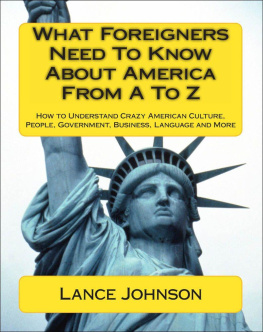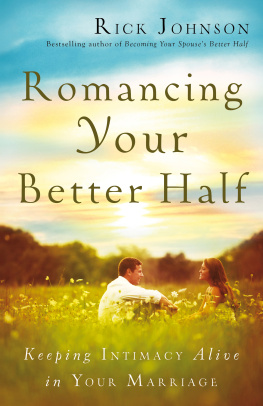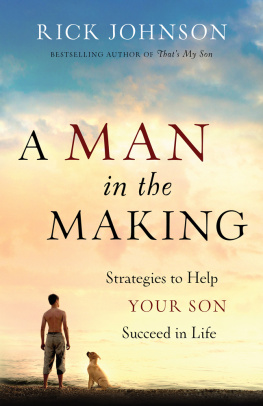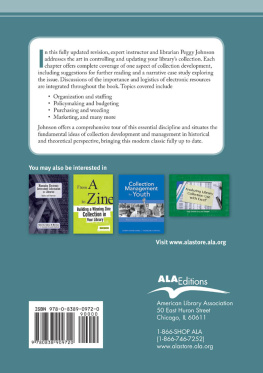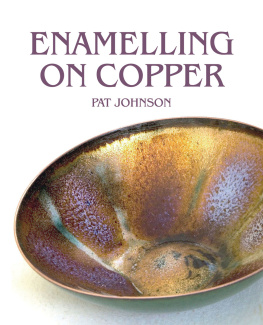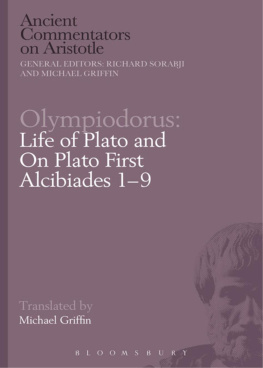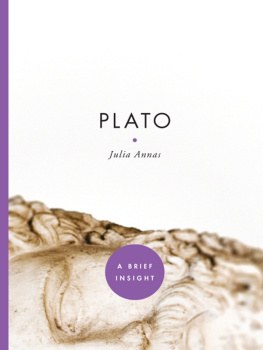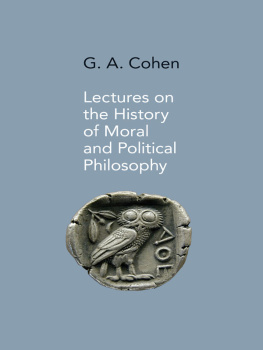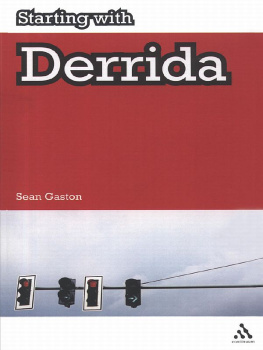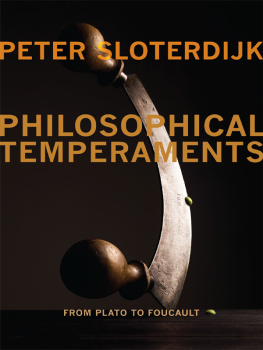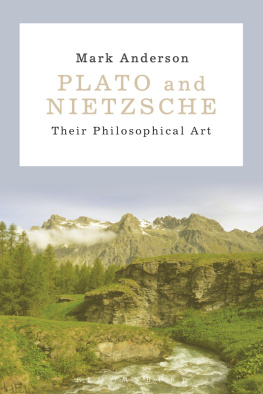Johnson - From Plato To Postmodernism
Here you can read online Johnson - From Plato To Postmodernism full text of the book (entire story) in english for free. Download pdf and epub, get meaning, cover and reviews about this ebook. year: 2019, publisher: Counter-Currents Publishing, Ltd, genre: Religion. Description of the work, (preface) as well as reviews are available. Best literature library LitArk.com created for fans of good reading and offers a wide selection of genres:
Romance novel
Science fiction
Adventure
Detective
Science
History
Home and family
Prose
Art
Politics
Computer
Non-fiction
Religion
Business
Children
Humor
Choose a favorite category and find really read worthwhile books. Enjoy immersion in the world of imagination, feel the emotions of the characters or learn something new for yourself, make an fascinating discovery.
From Plato To Postmodernism: summary, description and annotation
We offer to read an annotation, description, summary or preface (depends on what the author of the book "From Plato To Postmodernism" wrote himself). If you haven't found the necessary information about the book — write in the comments, we will try to find it.
From Plato To Postmodernism — read online for free the complete book (whole text) full work
Below is the text of the book, divided by pages. System saving the place of the last page read, allows you to conveniently read the book "From Plato To Postmodernism" online for free, without having to search again every time where you left off. Put a bookmark, and you can go to the page where you finished reading at any time.
Font size:
Interval:
Bookmark:
P HILOSOPHICAL E SSAYS & L ECTURES, VOL. 1
F ROM P LATO TO
P OSTMODERNISM
by
G REG J OHNSON
Counter-Currents Publishing Ltd.
San Francisco
2019
Copyright 2019 by Greg Johnson
All rights reserved
Cover image:
Luc Olivier Merson, Rest on the Flight into Egypt , 1879
Museum of Fine Arts Boston
Cover design by
Kevin I. Slaughter
Published in the United States by
C OUNTER- C URRENTS P UBLISHING L TD.
P.O. Box 22638
San Francisco, CA 94122
USA
http://www.counter-currents.com/
Hardcover ISBN: 978-1-64264-134-9
Paperback ISBN: 978-1-64264-135-6
E-book ISBN: 978-1-64264-136-3
C ONTENTS
P REFACE
A title like From Plato to Postmodernism is usually a sign that a book has a unity problem. What unifies this collection of lectures and essays, over and above the fact that I wrote them? An anthology is not a treatise, which should be an organic unity in which all parts contribute to the functioning of the whole. But a good anthology cant just be a heap of disjecta membra . The parts at least have to resemble one another. The parts may not all harmonize with one another, but at least they should not clash with one another. An anthology is more of a bundle, in which the distinct parts become stronger by being bound together, and I guess this Preface is the string.
Lets begin with the distinctions. These essays and lectures cover a period of more than twenty years. The earliest pieces are lectures presented in Atlanta to The Humanities Forum, The Invisible College, and The Atlanta Philosophical Society circa 1995 to 2000. The lectures on Plato and Kojve are edited transcripts of extemporaneous lectures. I have tried to eliminate wordy constructions and repetitions, but they still retain qualities of the spoken word. Chapters 7 through 10, plus chapter 17on Hegel, nihilism, Yeats, and liberal educationare texts from the same period written for oral delivery. The chapters on Aristotle, Rousseau, and philosophical dialectic also come from this time, but they were written as academic essays and can be slow going.
The rest of the texts date from 2011 to 2017. The chapter on Vico is an edited transcript of an extemporaneous lecture given at The London Forum in 2014. Postmodernism vs. Identity is a written text, parts of which were presented to an identitarian dinner gathering in Budapest and at The Scandza Forum in Oslo in the summer of 2017. The remaining textson Camus The Stranger and chapters 13 to 15, which are extracts from my mammoth Trevor Lynch essay on Pulp Fiction were written for online publication at Counter-Currents .
These texts have a number of things in common.
First, they are unified by the premise that the true first philosophy is not the study of nature (the first things we notice) or being (what is first in itself) but the study of human nature. First philosophy is what Plato called erotics, the exploration of the nature of the soul and what perfects or corrupts it. The method of philosophy is dialectic, which is a process of articulating what we always-already know because we humans are both the subject and object of philosophical inquiry.
Second, a proper understanding of the human soul leads to the rejection of liberalism and nihilism, which arise from false and reductive understandings of man.
Third, politics and culture have irrational foundations, thus philosophy needs to find a way to rationally understand politics and culture without subverting and destroying them.
There are other, subtler unities that I will leave to the careful reader to ferret out.
The thinkers I discuss most in this volume are Plato and Hegel. The thinker who most influenced my reading of Plato is Leo Strauss, although I make it clear where I accept and depart from his approach in the chapters on Plato and Rousseau. The thinker who most influenced my reading of Hegel is Alexandre Kojve. But sometimes the thinkers you discuss the most are not the thinkers you use the most. In this volume, the thinkers I use the most are Vico and Nietzsche.
The issue on which these essays diverge the widest is the status of belief in topics like God, providence, and the immortality of the soul. Plato and Rousseau offer pragmatic arguments for such beliefs, whereas Camus offers pragmatic arguments against them. I am genuinely undecided, which may mean that pragmatic considerations are not enough to decide such matters.
A couple of caveats. First, the lectures on Plato, Vico, and Kojve are extemporaneous. In such lectures, unless there is a footnote to a particular source, the words I attribute to other writers are paraphrases, not verbatim quotes. Second, because this is a collection of essays and lectures rather than a treatise, you dont have to read it in any particular order. But dont begin with the chapters on Vico and philosophical dialectic. The Vico lecture is the weakest piece here, but I include it simply because I want to encourage more people on the New Right to read Vico, and I dont want to delay circulating that message by waiting to write something more definitive on him. The chapter on philosophical dialectic is deep and useful but dense and technical. I fear that some readers who start there would never go on to the rest of the book.
Although the title and the arrangement of the texts run From Plato to Postmodernism , the intellectual journey of my readers moves in the opposite direction. They begin amidst the dregs of postmodernity. My goal is to lead them back towards Plato.
Because these texts were written over many years, in many different contexts, there are a lot of people to thank.
First, I wish to thank everyone connected to The Humanities Forum, The Invisible College, and The Atlanta Philosophical Society. I cant thank everyone by name, but I wish to at least allude to J.V.P., who got the whole thing going, as well as J.T., M.S., J. & B., Vera andMichael, and Sally for hosting many gatherings.
Second, I wish to thank the organizers of The London Forum, The Scandza Forum, and a dinner gathering in Budapest, where two of these texts were presented, as well as the many readers, writers, and donors who make Counter-Currents possible.
Finally, I wish to thank Kevin Slaughter for his work on the cover; V.S. for his transcriptions; Collin Cleary for his careful editing; James OMeara and Alex Graham for their help with the index; and F. Roger Devlin and James OMeara for their kind words of praise.
This book is dedicated to Josh Buckley, because of a fateful conversation about Kojve.
Budapest
June 8, 2019
I NTRODUCTION TO
P LATOS R EPUBLIC
Platos Republic is one of the greatest philosophical works. If you were to make a small list of the most influential books in all of history, clearly the Republic would have to be near the top. Its one of those books that contains an account of everything, like the Bible, like Dantes Inferno . Its a book about the whole, and it has had an absolutely enormous influence ever since it was written, particularly in the West, although now that Western civilization has effectively been globalized, it has a global reach and a global influence. Given the enormous influence of this book, we all should read it. To have read the Republic is a cornerstone for being a well-educated person.
But what is the Republic about? Many people think thats obvious. The Republic of Plato is a book of political philosophy. Its title in Greek is Politeia and is translated as republic. That sounds like politics. If you open the Republic you will find all kinds of discussions of political issues.
The dialogue begins with the question What is justice?, which occupies the first book and really all the rest of the Republic as well. When you get into the second book, the topic becomes the founding of cities. Socrates and his companions talk about the nature of culture, the founding of civilization, and the unfolding of civilization towards some kind of completion. As it turns out, the complete and best form of civilization is described as a city that has three classes. Theres a working class, a warrior class (the soldiers and policemen, called guardians), and then a ruling class, who are philosophers, of all things.
Next pageFont size:
Interval:
Bookmark:
Similar books «From Plato To Postmodernism»
Look at similar books to From Plato To Postmodernism. We have selected literature similar in name and meaning in the hope of providing readers with more options to find new, interesting, not yet read works.
Discussion, reviews of the book From Plato To Postmodernism and just readers' own opinions. Leave your comments, write what you think about the work, its meaning or the main characters. Specify what exactly you liked and what you didn't like, and why you think so.


